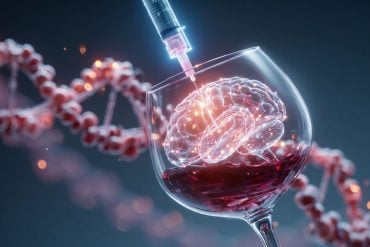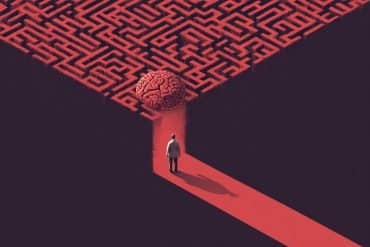Summary: Researchers have identified a brain function that could transform how schizophrenia is treated—by focusing on social inference, the ability to interpret social cues and intentions. The study found that strengthening this skill early can help young patients regain independence and prevent long-term cognitive decline.
Rather than relying solely on memory or attention training, social inference programs using structured exercises and games may yield greater improvements in daily functioning. This breakthrough could lead to personalized, community-based treatments that help patients recover faster and reintegrate into society.
Key Facts:
- Social Inference Focus: Researchers discovered that improving the brain’s ability to “read between the lines” in social situations boosts functional recovery.
- Early Intervention: Targeting this skill during the first stages of schizophrenia could prevent long-term disability.
- New Therapy Approach: Structured social training programs may outperform traditional cognitive treatments focused on memory or attention.
Source: Case Western Reserve
Researchers at the Jack, Joseph and Morton Mandel School of Applied Social Sciences at Case Western Reserve University have discovered a target in brain function that could change how schizophrenia patients are treated.
“We’ve been treating schizophrenia with a one-size-fits-all approach for decades,” said Jessica Wojtalik, an assistant professor at Case Western Reserve’s Jack, Joseph and Morton Mandel School of Applied Social Sciences.

“Now we have a specific target that could help young patients get their lives back on track much faster.”
Their findings were recently published in Psychiatry Research.
Most mental health problems, including schizophrenia, a serious mental health condition that affects how people think, feel and behave, start as teenagers—when their brains are still developing and can be easily damaged, according to the National Institute of Mental Health.
When mental illness occurs during this critical transition from childhood to adulthood, it can cause lifelong struggles in school, with friendships and controlling emotions and actions—problems that often last well into adulthood.
The main factor in determining whether patients can function in daily life is known as social inference skills—the ability to “read between the lines” in social situations. The researchers identified how this brain function can be targeted independently for treatment—and that early intervention during this critical window could prevent long-term damage.
“Think of social inference as your brain’s social detective work,” said the study’s lead researcher Anju Kotwani, a doctoral student at the Mandel School. “It’s how you figure out what someone really means when they say ‘fine’ in a certain tone or how you know when someone is being sarcastic versus serious.”
The researchers found that teaching patients to better understand social cues through targeted training programs that consist of structured computer games or worksheets could be more effective than traditional approaches that focus only on memory and attention skills.
The study of 102 patients revealed that social cognition—your brain’s ability to understand and navigate social interactions—acts as the crucial bridge between basic thinking abilities and functioning in daily life during the critical early stages of schizophrenia.
Researchers are calling for the development of social inference training programs for young people with early-stage schizophrenia be made available in their communities. “Addressing both thinking skills and social understanding offers the best hope for functional recovery in early schizophrenia,” said Kotwani.
Key Questions Answered:
A: They pinpointed social inference—the brain’s ability to interpret tone, context, and social cues—as a key skill that determines how well patients function in daily life.
A: Because schizophrenia typically develops during adolescence, strengthening social cognition early could reduce the long-term impact on education, relationships, and emotional control.
A: It suggests a move away from generalized medication-only approaches toward personalized cognitive training that builds social understanding through interactive, skill-based programs.
About this schizophrenia research news
Author: William Lubinger
Source: Case Western Reserve
Contact: William Lubinger – Case Western Reserve
Image: The image is credited to Neuroscience News
Original Research: Open access.
“Social cognition as a mediator between neurocognition and functional outcome in early course schizophrenia” by Jessica Wojtalik et al. Psychiatry Research
Abstract
Social cognition as a mediator between neurocognition and functional outcome in early course schizophrenia
Social cognition is an established mediator between neurocognition and functional outcome in schizophrenia, but there is limited evidence for this model specifically in the early course, which is a critical window for intervention to reduce long-term disability.
This study aimed to test the social cognition mediator model in the early course of schizophrenia and identify social cognitive subdomains that may have stronger indirect effects on the relationship between neurocognition and functional outcome.
This secondary analysis utilized baseline cognitive and functional outcome data from a cognitive remediation trial for outpatients with early course schizophrenia (N = 102).
A path analysis approach was used to compute mediation of social cognition (mediator; composite index and subdomain scores) on the relationship between neurocognition (predictor; composite index) and functional outcome (outcome; composite index). Significant positive associations were observed between neurocognition, social cognition, and functional outcome.
As previously observed, the mediation effect of the social cognition composite was significant (p = 0.042).
Of the seven social cognitive subdomains, only social inference (p < 0.001) emerged as a significant mediator. Reverse mediation models (mediator; neurocognition) were non-significant.
Results suggest that the impact of cognition on functional outcome in the early course occurs, in part, through the impact of neurocognition on social cognition, which subsequently influences functional outcome.
In addition, social inference is possibly an important treatment target of functional recovery in the early course of the condition, highlighting a potential future research direction.
These findings further support the provision of comprehensive cognitive remediation approaches to facilitate functional recovery.






